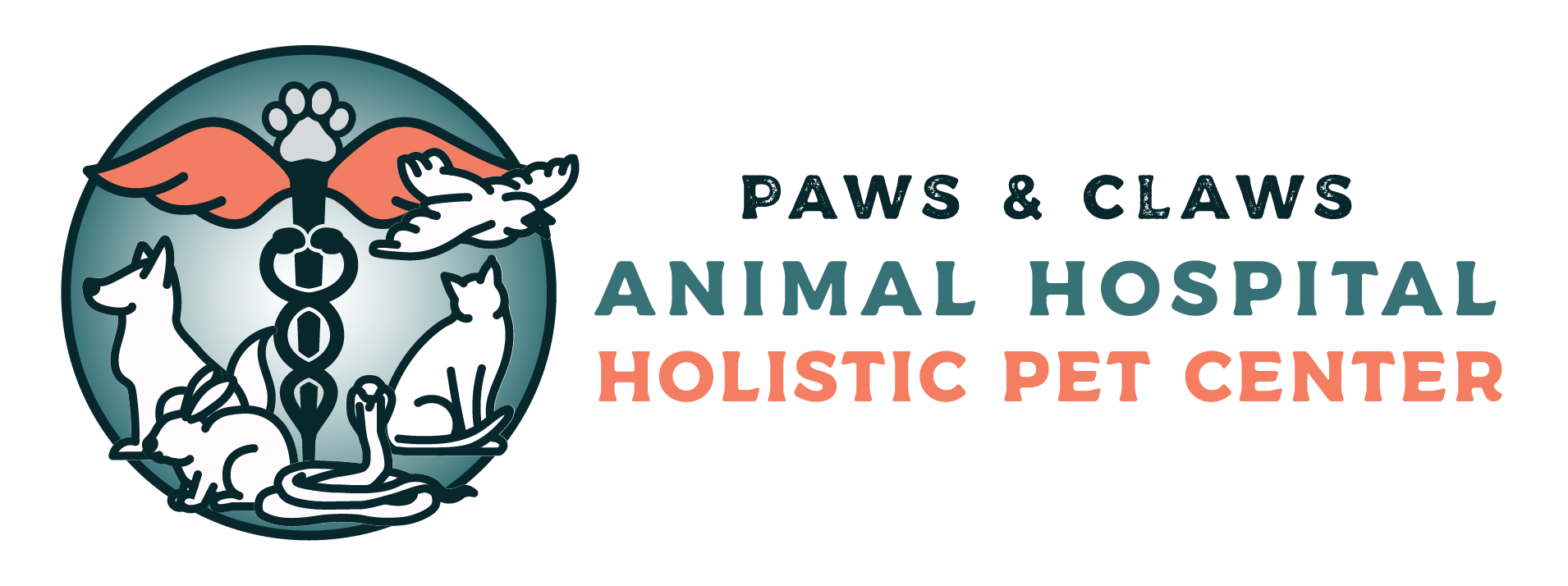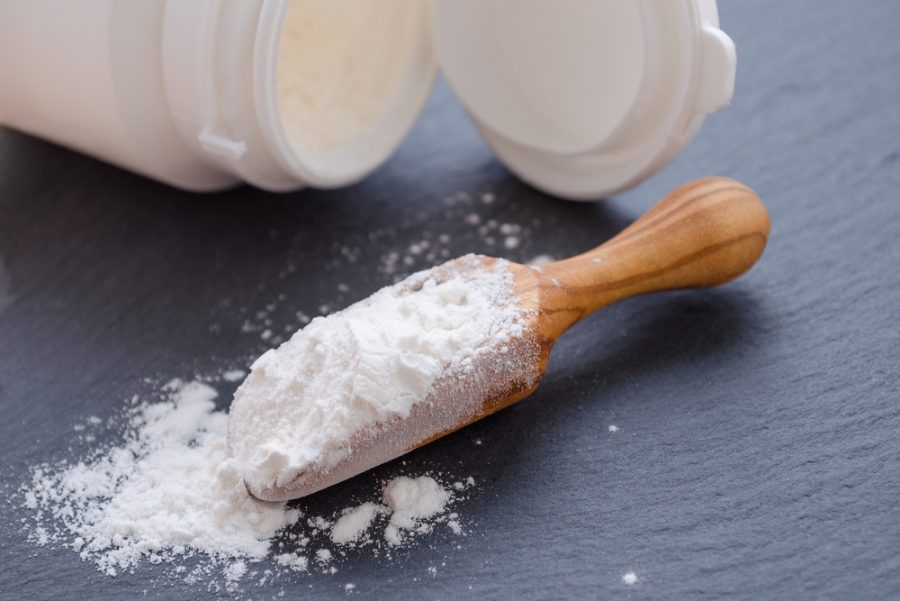They’re not just for GI issues. Probiotics can help with a range of health problems and can also help maintain overall wellness in healthy dogs and cats.
Supplements for dogs and cats are many and varied, but my clients ask about probiotics the most. In fact, it’s a rare consultation during which the topic of probiotics doesn’t come up. So it’s obvious that this particular supplement is of concern to pet owners. And for good reason. Let’s take a closer look at probiotics and why they are so important to the health of your dog or cat.
What Exactly are Probiotics?
Probiotics are nutritional supplements with a variety of uses. The name probiotic literally means “for life”. Without probiotics, there literally can be no life. Probiotics are composed of bacteria (typically) or yeasts (less commonly) that keep people and pets healthy and alive, as opposed to the pathogenic microorganisms (such as E. coli or Staph spp.) that cause disease and death.
All animals and people are born with a healthy microbiome, a collection of microorganisms that populate the GI tract. There they reside, reproduce, and maintain health by preventing overgrowth of pathogenic bacteria and yeasts. Without probiotics in the gut, pathogenic microorganisms would populate the GI tract and kill the animal or person. There are so many microorganisms in the GI tract keeping us healthy that this microbiome, which influences the local lymph tissue in the walls of the intestine (called GALT — gut-associated lymphoid tissue) functions as the largest lymphatic organ in the body. The beneficial bacteria are important for a variety of essential functions, including digestion, producing and metabolizing vitamins, fatty acids, and other trace nutrients, and protecting the body from infection.
When Might a Probiotics Supplement be Needed?
By giving a dog or cat good healthy bacteria in the form of probiotics, we can help him stay healthy by supporting not just his GI health but also an important arm of his immune system.
While we typically use probiotics for pets suffering from GI problems, they are useful for many other issues as well. Here are some of the instances in which I might prescribe probiotics (to be honest, I recommend them to all my clients because of the many health benefits).
- An infection in the body or GI tract
- Changes that cause stress (boarding, moving, vaccination, surgery, etc.)
- Abrupt changes in the pet’s diet
- Immune disorders
- Young pets adapting to a new house
- Old pets who typically have “weakened” immune systems
- Pets taking medications, even for a few days, but especially if longer than one week, including antibiotics, antifungals, NSAIDs, and steroids; many medications destroy the normal bacterial flora of the GI system; probiotics repopulate the system with normal and healthy bacteria
- Pets with specific medical problems that increase the risk of infection, including diabetes and
- Cushing’s/adrenal disease
- GI parasites
- Cancer
- Allergies
- IBD
- Vomiting/diarrhea
- Various inflammatory conditions (arthritis, dental disease, etc.)
- Leaky gut syndrome (see sidebar)
- Hairballs — I typically use probiotics and enzymes to achieve ideal hairball control
What Probiotic Species are Best?
While various manufacturers claim that their supplements contain the “correct” or “best” species of probiotic microorganisms, in reality, we don’t yet really know what is “best”. Manufacturers have done limited studies on their products, showing benefits for specific disorders, although this has been more extensively done for human probiotics. It may be that one day we’ll discover that a certain strain of probiotic is best for treating a certain disease. For now, I prescribe quality supplements that contain viable organisms – I use a product that contains both probiotics and enzymes, to aid in digestion.
Consider a combination product that provides both probiotics and enzymes, to offer additional GI and anti-inflammatory support.
In general, probiotic supplements should contain at least one or more of the following strains of healthy bacterial species, since these are well known and have shown positive results in the few studies that have been done to date: Bacillus coagulans, Lactobacillus spp., and Bifidobacterium animalis (strain AHC7). In my opinion, the specific microorganisms may not be as important as just making sure the pet is taking probiotics.
Probiotic products should contain live bacteria — ideally at least one billion beneficial bacteria per serving. They should not contain artificial ingredients.
Should “Normal” Pets Take Probiotics?
Yes! Pets and people do not need to be ill in order to benefit from probiotic supplementation. And it may be probiotics for healthy pets could prevent or minimize various disorders, especially GI problems.
Probiotics are among the most important supplements you can give your dog or cat. In addition to supporting a healthy GI system, they can provide immune support and are an important aspect of treating a variety of medical disorders.
A Note About Prebiotics
The term “prebiotic” is often used in conjunction with “probiotic” and is closely related to it. Prebiotics are basically food for the probiotics. Prebiotics (“pre” means “before” and “biotic” means “life”) are therapeutic nutritional preparations used for GI effects; they favor the growth of normal bacterial flora without favoring the growth of pathogenic organisms. Another definition I like is that prebiotics are a non-digestible, selectively-fermented food ingredient that changes composition and/or activity in the gastrointestinal microflora, conferring health benefits on the host. In pets, these foods include inulin, fructooligosaccharides, manno-oligosaccharides, and arabinogalactans.
Leaky Gut Syndrome
While conventional medicine doesn’t recognize this common disorder, it’s important to diagnose and treat leaky gut syndrome in order to maximize health and improve treatment response in sick pets. Leaky gut arises when the integrity of the mucosal lining of the GI tract is damaged, causing it to become permeable or “leaky”. Common causes include a variety of medications and any other toxins that enter the GI tract. When increased permeability occurs, unwanted molecules (toxins, harmful bacteria) are allowed to pass through the GI tract into the body.
Since the body recognizes these molecules as foreign, it attacks them, likely contributing to a variety of autoimmune diseases, including Type 1 diabetes and autoimmune thyroiditis. In addition to absorbing toxins, leaky gut also “leaks” beneficial proteins, including globulins, into the GI tract and out of the body. Over the long term, this can cause death through low body levels of protein. Finally, even though leaky gut is not recognized by many mainstream doctors, it has been shown to be the cause of fatality in dogs dying from parvoviral infections.
While prebiotics provide nutrition for the probiotics, they also have their own positive health effects. For example, arabinogalactans have been shown to offer local GI immuno-modulating effects.

